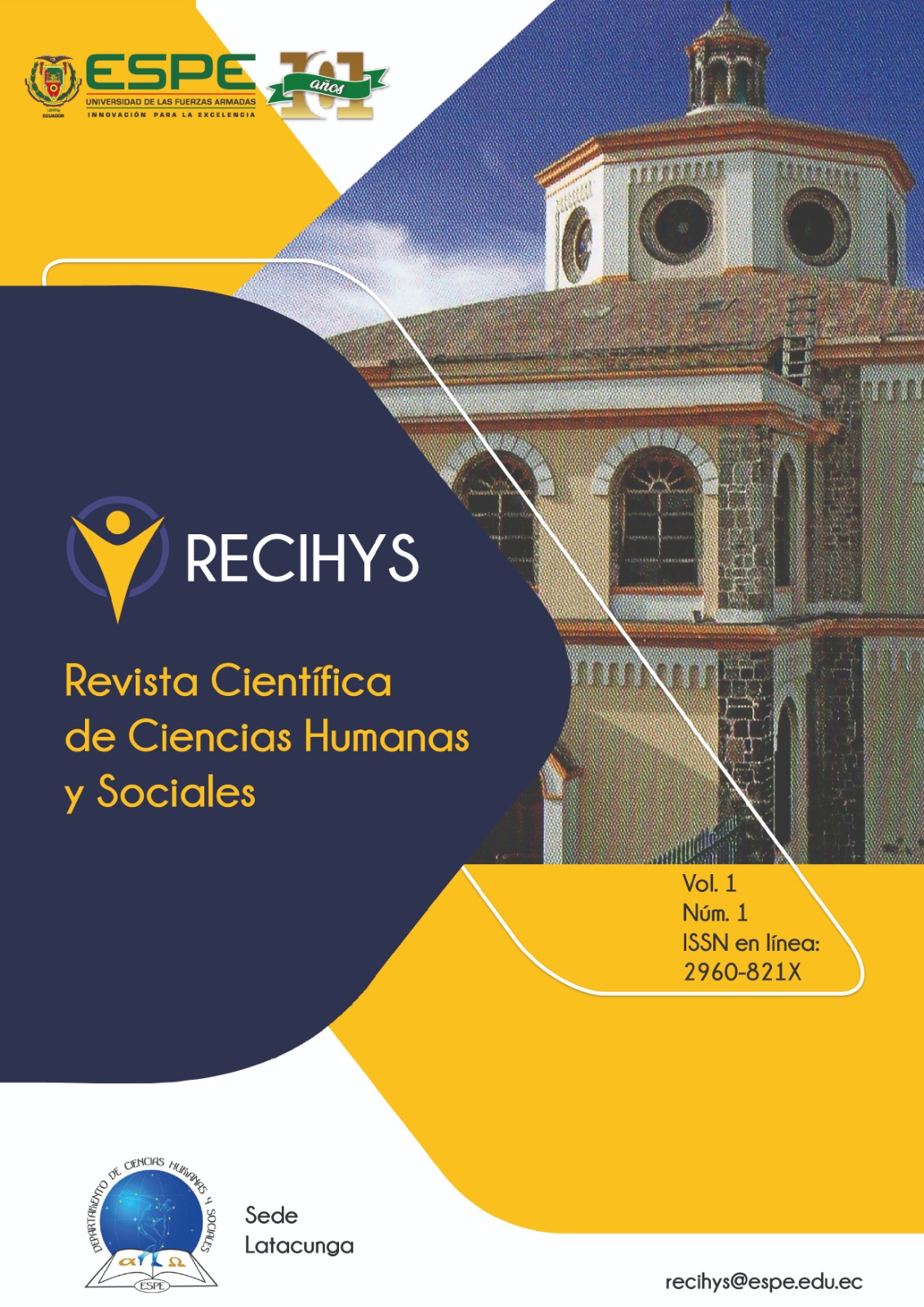Leisure from a Functionalist vision for personal development, fun and rest, from ancient times to the present
Main Article Content
Abstract
Functionalist leisure is based on three important terms: fun, rest and personal development. In addition, this has different points of view difficult to understand, because this term has evolved over time, allowing us to contemplate different perspectives of it, for this, we analyze redundant stages of history in terms of functionalist leisure and its evolution over time, in this case we have highlighted five periods of importance to humanity. This article was carried out through the bibliographic review of different documents. In different databases such as Scielo, Redalyc and Google Scholar, among other platforms, and we also relied on Zotero for the organization of documents and bibliographic citations, which allowed us to perform an orderly and concise work. Among our findings we can highlight how functionalist leisure has evolved over time, having different meanings according to the era in which it is developed, and how in ancient times leisure was based more on outdoor activities or in person, through the coexistence between people in their environment, But nowadays it has changed its perspective in the world, as technology has allowed many conveniences for the human being making the visualization of leisure both positive and negative for society, and in the same way the use of their free time for leisure has changed, much of society prefers the comfort of your home. Even so, leisure is fundamental to the development of our lives.
Downloads
Article Details

This work is licensed under a Creative Commons Attribution-NonCommercial-NoDerivatives 4.0 International License.
Authors who publish in this journal agree to the following terms: Authors retain the copyright and guarantee the journal the right to be the first publication of the work, as well as, licensed under a Creative Commons Attribution License that allows others share the work with an acknowledgment of the authorship of the work and the initial publication in this journal. Authors may separately establish additional agreements for the non-exclusive distribution of the version of the work published in the journal (for example, placing it in an institutional repository or publishing it in a book), with acknowledgment of its initial publication in this journal. Authors are allowed and encouraged to disseminate their work electronically (for example, in institutional repositories or on their own website) before and during the submission process, as it may lead to productive exchanges as well as further citation earliest and oldest of published works.
How to Cite
References
Blanco, A. V. (2016). Ocio entre pares en la era digital: Percepción del ocio conectado juvenil. Revista de Psicología del Deporte, 25, 6. Recuperado de: https://www.redalyc.org/articulo.oa?id=235149102010
Cabezas, L. T. (2021). Estado de la cuestión sobre la gestión pública del turismo gastronómico en Ecuador: Avances al 2020 y áreas pendientes de atención para su desarrollo. Tourism and Heritage Journal, 3, 101-118. https://doi.org/10.1344/THJ.2021.3.7
CONSTITUCION DE LA REPUBLICA DEL ECUADOR. (2008). CONSTITUCION DE LA REPUBLICA DEL ECUADOR 2008. Obtenido de https://www.oas.org/juridico/pdfs/mesicic4_ecu_const.pdf
García-Sánchez, R. (2019). Historia del juego como ocio y las artes. Anales del Instituto de Investigaciones Estéticas, 8-37. https://doi.org/10.22201/iie.18703062e.2019.114.2664
Garzón, F. R. (2015). El ocio, la fiesta, la diversión. 13. https://www.uv.es/gibuv/Roger/Ocio.pdf
Gomes, C. L. (2014). El ocio y la recreación en las sociedades latinoamericanas actuales. Polis (Santiago), 13(37), 363-384. https://doi.org/10.4067/S0718-65682014000100020
Maximiliano Korstanje. (2009). La germaneidad y el ocio en el mundo antiguo: Entre la ideología y el placer. Culturales. https://www.redalyc.org/articulo.oa?id=69412157007
Mendoza, S. H., & Avila, D. D. (2020). Técnicas e instrumentos de recolección de datos. Boletín Científico de las Ciencias Económico Administrativas del ICEA, 9(17), 51-53. https://doi.org/10.29057/icea.v9i17.6019
Ortiz, V. (2022). El Ocio. Obtenido de Gloria de Roma: https://gloriaderoma.com/el-ocio-romano/
Prados, M. Á. H., & Muñoz, J. S. Á. (2020). EL ORIGEN DEL OCIO EN LA PREHISTORIA. https://www.eumed.net/actas/20/educacion/40-el-origen-del-ocio-en-la-prehistoria.pdf
Rodríguez, M. (2021). Historia de la recreación. Obtenido de https://es.scribd.com/document/507544361/TRABAJO-DE-LA-HISTORIA-DE-LA-RECREACION
Universidad de Navarra. (2021). Presente y futuro del trabajo. Recuperado de: https://dadun.unav.edu/bitstream/10171/62733/1/CEyH%20138%20%282021%29.pdf
Vázquez, M. H., González, Á. M., Hernando, A. B., & Parra, M. A. (2020). EL JUEGO EN EL PRERROMÁNICO ASTURIANO, EN EL CONTEXTO MEDIEVAL ESPAÑOL. Obtenido de ATHLOS. Revista Internacional de Ciencias Sociales de la Actividad Física, el Juego y el Deporte. Recuperado de: http://museodeljuego.org/wp-content/uploads/1.-EL-JUEGO-EN-EL-PRERROM%C3%81NICO-ASTURIANO.pdf

